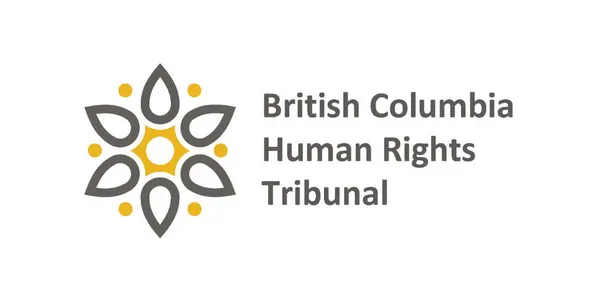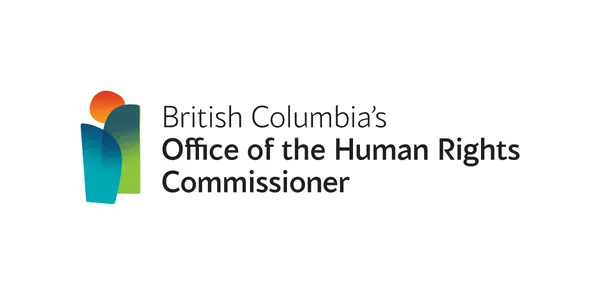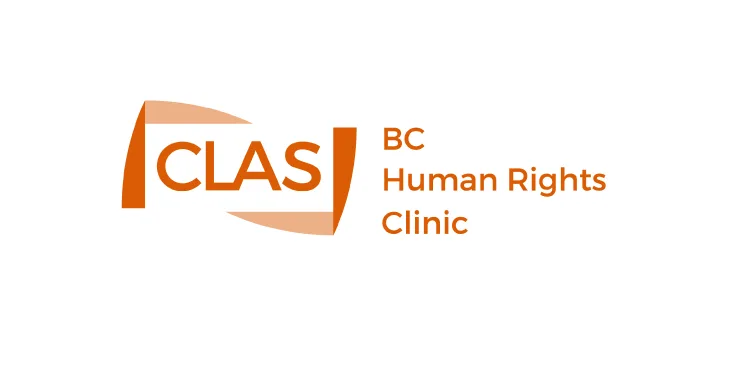
My partner and I were denied service at a restaurant because we had our eight-month-old with us. Is this allowed?
We shop at stores, dine at restaurants, take classes — accessing services like these is a regular part of daily life. When accessing services in British Columbia, you have the right to be free from discrimination. Learn how this plays out in practice, and steps you can take if you experience discrimination when accessing a service.
Content warning
This page describes experiences of discrimination. It may bring up difficult or traumatic memories or feelings.
What you should know
Human rights law helps protect everyone from discrimination. It says no one can be treated badly or unfairly because of certain parts of their identity, such as race or sex. The law calls these protected characteristics.
Under BC’s Human Rights Code the protected characteristics include:
your race, colour, ancestry, or where you’re from
your Indigenous identity
your sex, sexual orientation, or gender identity or expression (sex includes pregnancy, breast feeding, and sexual harassment)
your age (if you are at least 19 years old)
any physical or mental disability
your marital status
your family status (for example, if you have kids)
your religion
Discrimination can take many forms
Discrimination can occur when someone is treated badly because of a protected characteristic. For example, if a hotel cancels your reservation after finding out you follow a certain religion.
Discrimination can also be less direct. Sometimes a policy or practice that applies to everyone can have a discriminatory effect on some people. For example, say you have a physical disability that confines you to a wheelchair. You go to a restaurant, but you can’t access it because the only way to enter is by climbing a set of stairs. The restaurant’s layout has a negative impact on you in relation to a protected characteristic — your disability. This is a form of discrimination.
Sometimes the systems you interact with can work to discriminate against you. This is called systemic discrimination. It includes rules, policies, attitudes and structures that privilege some groups and disadvantage others. For example, there’s well-documented systemic discrimination in policing and health care in BC. Here, we explain systemic discrimination in more depth.
Intention doesn’t matter
Discrimination doesn’t need to be intentional. It’s the impact the treatment has on someone that’s important.
What human rights law applies
BC human rights law applies to housing in BC and most workplaces and services in the province. But there are some settings where the Canadian Human Rights Act applies. For example, it applies if you’re dealing with a company regulated by the federal government, such as an airline or a cellphone provider. Here is guidance on which human rights law applies, depending on the situation.
“I'm a big karaoke fan. But I’m still reeling from the last time I went. My partner and I were doing a favourite Wham! song, hamming it up, when the server yelled at us, swearing, saying we didn’t belong there and the gay bar was down the street. The whole place heard it. We both sort of froze — how do you respond to that? Later, we reported the incident to the manager. They assured us the server would be disciplined.”
– B.H., Richmond, BC

Under BC human rights law, you’re protected from discrimination when accessing a service or place “customarily available to the public.” This is a broad category. It includes stores, hotels, restaurants, schools, community centres, police services, and more.
To be classified as public, a service doesn’t need to be available to everyone. The “public” for a service could be customers, students, or even volunteers. Here are examples of settings found to be customarily available to the public:
Services offered by strata corporations are also covered by this law (as explained here). So are health care services (see our in-depth coverage) and housing co-operatives.
Private services are not covered
The protection against discrimination doesn’t extend to private services. To decide if a service is public or private, the question is whether the service creates a public relationship between the service provider and user.
Two other exceptions
The law carves out two exceptions to the discrimination rules when accessing a service.
First, it’s a defence to a claim of sex discrimination if the purpose of the conduct or treatment in question is to maintain “public decency.” The law doesn’t define public decency. But the courts have said it should be interpreted narrowly.
Second, it’s not discrimination if premiums or benefits under a health or life insurance plan are based on sex, physical or mental disability, or age.
Indigenous and Black people are disproportionately impacted by discrimination
Our page on systemic discrimination digs deeper into historical and ongoing discrimination against Indigenous, Black and racialized people in BC. We also have more specific information for you if you are Indigenous and experience discrimination.
If someone faces a disadvantage in accessing a service due to a protected characteristic, the service provider has a duty to accommodate them. This means the service provider must take all reasonable steps to remove the disadvantage.
Here’s an example. A student attending a college program is non-binary. They develop severe anxiety because the college only has male and female washrooms. In this way, they face a disadvantage in accessing the service due to a protected characteristic, their gender identity or expression. To accommodate the student, the college switches some of its washrooms to gender neutral. They also post signs outside all washrooms saying "Gender diverse people welcome."
More examples of accommodation
What the duty to accommodate requires depends on the situation. Here are some more examples of what accommodation might look like.
| Negative effect due to protected characteristic | Accommodation |
|---|---|
| A taxi driver refuses to pick up a visually impaired customer because she has a seeing eye dog with her. | The taxi company adds an exception to its “no pets allowed” policy for service animals. |
| An Indigenous man staying in a hotel is prohibited from performing a smudging ceremony on the premises. | The hotel allows the man to perform a smudge in the rooftop garden. |
| A boy whose religion requires head coverings is prevented from playing in his rec soccer game. | The league creates an exemption from its policy prohibiting head coverings for those required to wear them for religious reasons. |
| A deaf student is attending a university class and cannot hear the professor’s lecture. | The university arranges for ASL interpreters to attend class with the student and the professor ensures the student has lecture notes prior to the lecture. |
If you ask for accommodation
If you ask for accommodation, you must cooperate with the service provider. You may need to share certain information. For example, the parents of a child with a learning disability may have to provide details of the condition in order for the child’s teachers to adjust. Both sides may need to compromise. The perfect solution isn’t guaranteed.
Sometimes, accommodation isn’t possible because it would cost too much. Or there may be negative consequences for others. For example, a small business may not be able to afford installing an elevator to accommodate customers with certain physical disabilities. To account for this, the duty to accommodate only extends to the point of undue hardship.
Options for free or low-cost legal help
Identifying a duty to accommodate and determining what amounts to undue hardship isn’t straightforward. If you think a duty to accommodate may apply in your situation, consider getting legal advice. Here are some options for free or low-cost legal help.
Work out the problem
If you think you’ve experienced discrimination, the first step is to get your thoughts together. Make detailed notes of what happened. Do this as soon as you can.
Make sure you note:
What happened: describe the way you were treated unfairly.
Why you think this happened: the protected characteristic you think was a factor in the unfair treatment.
The impact: details of how this experience has had a negative effect on your life.
Who else is involved: as in, who can back up your story.
If there is documentation that you think supports your view of what happened (for example, emails from a service provider where they state that they will not provide accommodations you requested), make sure you keep copies.
If the discrimination results from a rule or policy, write down when you first noticed the problem. Get a copy of any document that includes the rule or policy.
Also think about what you want to happen. Presumably you want the discrimination to stop. Is that enough on its own? Are you hoping for an apology? Or for the other party to commit to change their approach in situations like yours? Or something else to happen?
Sometimes it can be hard to figure out whether you were discriminated against. Your answers to these three questions can help you decide:
Is a protected characteristic in play? (See above, under what you should know, for the personal characteristics protected from discrimination.)
Was I treated in a way that had a negative impact on me?
Was the protected characteristic one of the factors in how I was treated?
You’ll need to show how the answer is ‘yes’ to all three of these questions in order to show you were discriminated against. (The protected characteristic doesn’t need to be the only or most important factor in how you were treated. It just needs to be a partial factor.)
It’s enough to show that the facts support a “reasonable inference.” For example, a rec softball league disqualifies a Pakistani player from being team captain. The reason given is they don’t speak English well enough. Those facts may support a reasonable inference that the player was discriminated against.
If you’ve experienced discrimination, raise the issue with the service provider. They may not be aware their words or actions are negatively affecting you. Talking things through can stop the problem from getting worse. Or resolve it entirely.
It may not be possible to deal directly with the party who has discriminated against you. In that case, try contacting someone in a position of authority. For example, a restaurant manager or the principal of your school.
Propose a solution to the problem. This could involve asking them to remove a barrier you face, or change a policy or practice. Be open-minded and willing to compromise.
Some service providers have their own processes for handling complaints. For example, customer complaints may go to the human resources department. Other organizations, like public sports leagues, often have their own dispute resolution procedures as well.
You may also be able to make a complaint to a regulatory body. For example, parents and students can make a complaint about a teacher to the Commissioner for Teacher Regulation. Complaints about police can be made to the Office of the Police Complaint Commissioner.
In BC, a discrimination claim is made to the BC Human Rights Tribunal. You must file the complaint within one year of the incident you’re complaining about. We walk you through what’s involved and offer step-by-step guidance on making a human rights complaint.
Get help with filing a complaint
The Human Rights Clinic may be able to help you file a complaint with the tribunal. The clinic may also be able to assist you at a hearing.
Who can help
The BC Human Rights Tribunal lists organizations that can help if you feel you’ve been discriminated against. Below are some of the key ones.

BC Human Rights Tribunal
Receives and resolves discrimination complaints under BC law.

BC’s Office of the Human Rights Commissioner
Works on systemic human rights issues and educates people about human rights in BC.

BC Human Rights Clinic
Provides free assistance and representation to those who qualify for help with a discrimination complaint under BC law.

Access Pro Bono's Free Legal Advice
Volunteer lawyers provide 30 minutes of free legal advice to people with low or modest income.

Access Pro Bono’s Everyone Legal Clinic
Clinicians provide affordable fixed-fee services on a range of everyday legal problems.

Lawyer Referral Service
Helps you connect with a lawyer for a complimentary 15-minute consult to see if you want to hire them.

BC Legal Directory
Search for a lawyer by community, area of law, or language spoken. From the Canadian Bar Association, BC Branch.

